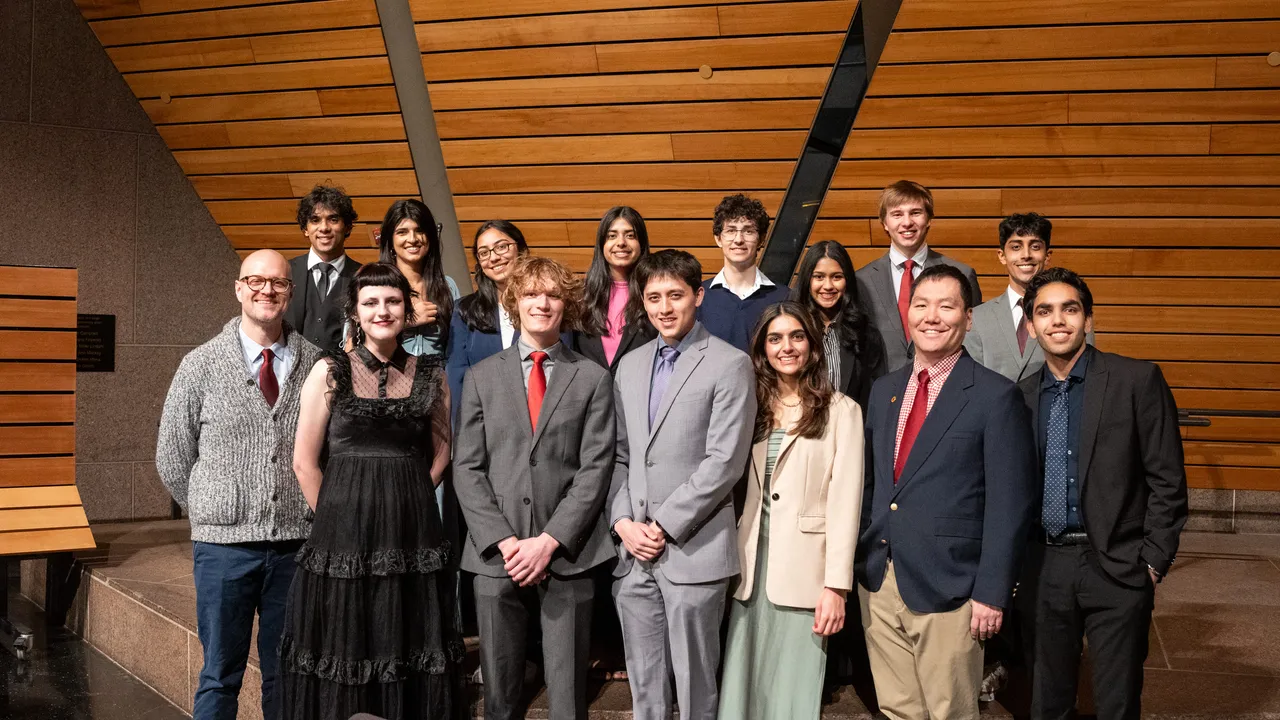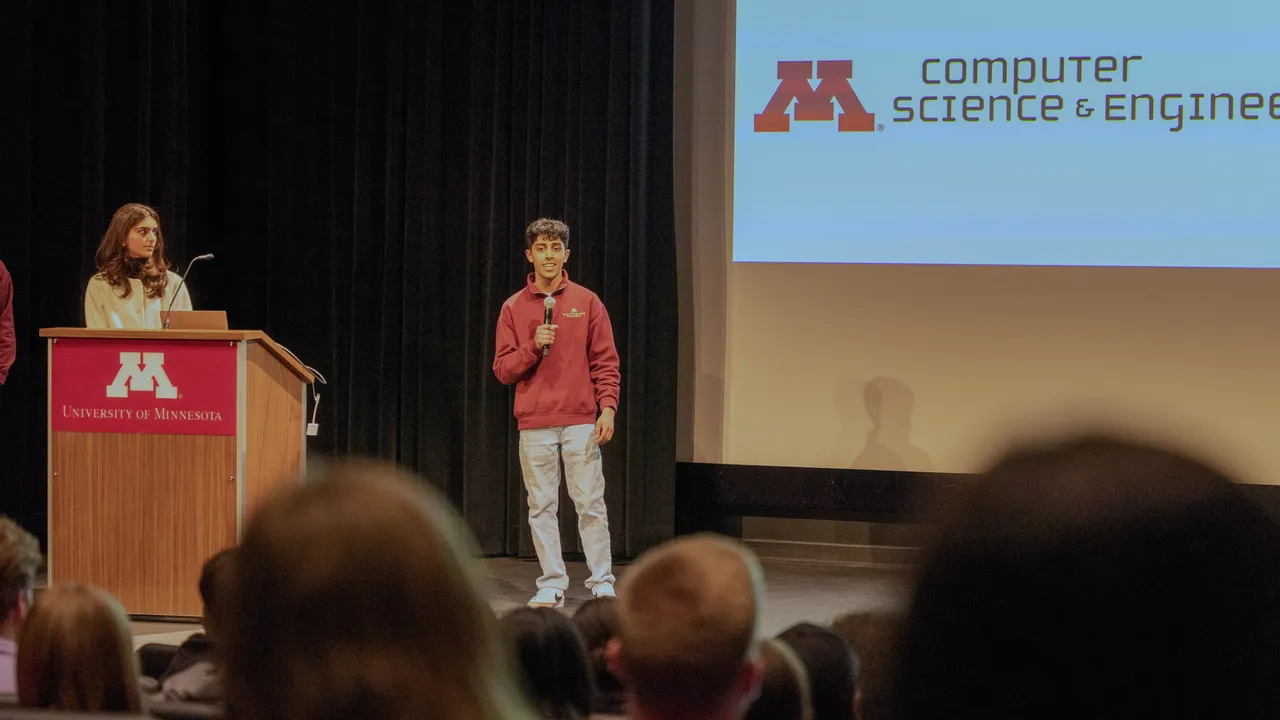Leadership @ SESB
July 4th, 2025
I joined the Science and Engineering Student Board (SESB) during my first semester at the University of Minnesota. Throughout my tenure I served various positions as both a mentee and mentor. It has been a place where I’ve made many amazing friends and learned a lot about what it means to be a good leader.

Oftentimes, I find myself reflecting on the many implicit lessons I’ve learned while serving on board and how they relate to my overall career. Throughout my various positions, I’ve been exposed to various challenges, opportunities, and hurdles that have shaped the person I am today and I’d like to share those with you in this post.
Know Your Audience
Learning about who will be impacted by your initiatives as a board member is one of the most crucial aspects of leadership that is often overlooked. Personally, I’ve witnessed some amazing projects sink because they depended heavily on the accuracy of assumptions rather than fact. Most times, the assumptions are trivial. For example, hosting a well planned first-year event but not being aware that many chemistry and physics exams are that week. There’s no way to fully hedge against every contingency, but by having a diverse committee and being proactive about getting eyes on your work, much of these issues can be resolved.
When you take on a director level position your direction switches slightly. While your initiatives still take priority, you should begin paying more attention to the members of your committee. Understanding their motivations and strengths should start to become your focus. With your stronger understanding of how initiatives are ran, try to connect them to the right resources such that they succeed.
When I’m pulled into product design meetings at work, these are the two points which are highlighted the most. Tech is a highly volitaile space, assumptions held one night can become invalid the next. Many an occasion I have observed team leads add more work on sprints because they held an incorrect assumption about a software library or the product space. As for the second point, some of the greatest managers and mentors I’ve had are those who are willing to put someone unfamiliar to the codebase, like myself, on a ticket even when a more capable individual is available.
Data Driven Decision Making
While knowing your audience is great, having a retrospective understanding of your current and past work is equally as important. Hold various checkpoints to revisit the problem, quantiatively measure the impact of your initiatives, and understand why something went well or not well.
One of the pillars of SESB that I truly appreciated the most were the various transition documents and retrospectives we held throughout the year. Documentation about your work is so important, not only for yourself, but your peers as well. Even though you may think everything you do gets noticed, this is often not the case due to many factors such as distance from the project or recency bias. Document, document, document.
At work, this has encouraged me to keep a daily task log for all the work that I do from closing tickets, investigating new implementations, assisting a peer, etc. During performance reviews I’ve found this log to be a savior in many cases. Many times I find myself asking my managers or peers about their opinions on how I completed specific tasks, having this document makes it a lot easier.
Give Detailed Feedback
Giving, recieving, and acting upon feedback is one of the most difficult aspects of any job. Oftentimes I encounter people, including myself, who are great at one, two, but almost never all three of these things. Some of the most important realizations and pieces of advice I have recieved have been through good formatted feedback, it’s a vital part of any career.
When your audience is often also a close friend of yours, giving feedback can be difficult. There’s always a lingering fear of antagonizing the person, which can discourage honesty. While this feeling may never go away, there are ways you can approach this effectively.
- Share positive feedback whenever possible, but never do so if you don’t mean it.
- “Thank you for lending a hand with <blank>, it was great foresight of you.”
- “The student body found <blank> very innovative, let’s do it again next year.”
- Always share negative feedback face-to-face, emails and documents can be misinterpreted.
- Be specific, your feedback should involve one topic and be easily identifiable.
- Phrase feedback as a conversation, never a demand or accusation.
- For the future, I have found <blank> helpful in resolving this issue.
- Attendance was lower than expected this year, what could have gone wrong?
Feedback you recieve should always be percieved as a gift, as it is always easier to not give feedback and ignore the situation entirely. Most times, your peers will not be forthcoming with feedback. Be proactive and amicably ask informally whenever you get the chance or curiosity. Specifics are critical, lots of feedback will try to avoid directly addressing the issue but this is counterintuitive. When you get ambigious feedback, dig deeper. Lastly, always be accepting of feedback and remember that mistakes or shortcomings do not define a career.
Addressing feedback is the final step of the process, and one of the harder parts nonetheless. In this case two things should be remembered: feedback is optional and feedback is often forgotten. When you get feedback, remember that not everything needs to be acted upon. If you strongly believe that the feedback is not valid then you are in your right to brush it off. Of course, don’t get into the habit of doing this frequently as inaction can make your peers (rightfully) feel as if giving feedback is a waste of time. Additionally, always keep a log of feedback somewhere because as people get busy much of this can be brushed under the rug.
Giving feedback constructively is an art that takes practice. This means most engineers are not very good at it.
~ Gregerly Orosz
(The Software Engineer’s Guidebook: Navigating senior, tech lead, and staff engineering positions at tech companies and startups, pg 33)
Focus On The Big Picture
It can become very easy to get caught up on the small things which went wrong that you entirely forget about your successes. Anecdotally, during the ELS ‘25 Welcoming Ceremony I was tasked to introduce the various sponsors and interested parties for the event. I rememember after giving the speech and thinking to myself, “Did I speak too fast?”, “I definetely stumbled on my words”, and “Was my wording clear?”. My mind was so engrossed to what went wrong that it wasn’t until I recieved praise for my speech that I realized it went better than I thought.

This is very common. Even today I find myself falling into this trap. Throughout hosting various initiatives, working with many companies, or giving speeches it’s so easy to focus on the negative because you’ve itemized each action item that you forget the audience has no idea about them. Things often turn out better than you percieve them, and it’s not worth fixating on the shortcomings outside of deriving feedback from them.
Even in the workplace, it’s common to hyperfixate on negative feedback or future downturns that one forgets about their current work. While it’s important to acknowledge when things go wrong, understand that people will look at the work you do hollistically. Focus on performing well consistently, not constantly, as it’s a much more sustainable mindset.
Trust Your Peers
Delegating work, especially for the first time is not easy. It’s very easy to fall into this trap of “well, I have more experience and can deliver better, let me take it on”. Unfortunately, this mindset leads into you taking on more work than is feasible and your committee members not having enough work. Inherently there is a risk in assigning work to someone inexperienced, but that is your responsibility to manage and hedge that risk.
If you hog work, it is noticeable, and it’s miserable for everyone involved. You will feel overwhelmed throughout the process and your members with very little to do become bored. In the workforce, the same concept is echoed. Being closed off in your work and reluctant to ask for help makes it seem as if you’re not willing to be a team player. Avoid failure, but do not be afraid if it comes knocking on your door.
Reputation & Optics
People want to be a part of a winning team that is driven. Strive to hold a very strong reputation amongst your clients, coworkers, and higher ups. In addition, master your optics to highlight your strengths and successes without compromising your reputation.

- Be amicable, approachable, and smile often.
- One of the most overlooked aspects of reputation is that of kindness. Being easy to work with is so critical to how people percieve you.
- Choose your battles carefully.
- Some projects are more valuable than others. Quantify and define your measurements for success before investing resources.
- Do not be afraid to say no. Some projects are not worth the investment at that moment. While harsh at first, will save you a lot of suffering later.
- Prioritize what matters. Know what needs to get done and do not delay in delivering.
- Be reliable
- Show up when you’re requested and show up even when you’re not. Being dependable will open the doors to future opportunities.
- Underpromise and overdeliver
- Keep projects minimal, enough to derive value but not encumbering. Do more if you get the time and demonstrate that.
- Collaborate with others
- One of the best ways to get more eyes on your work is to collaborate. Run combined events or co-host an initiative.